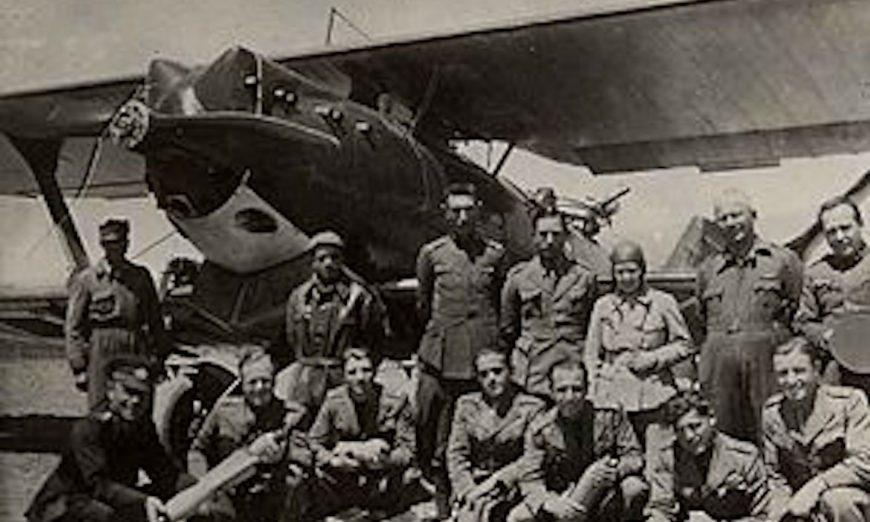Turkey’s prime minister achieved a milestone when he recently apologized on behalf of the state for the Dersim massacre of the 1930s.
“On behalf of the victims, our petition is ready and all evidence has been collected, including what the prime minister said,” stated Erdal Doğan, a human rights lawyer in İstanbul. Together with a colleague, Eren Keskin, they are preparing to submit the petition to the ICC at The Hague in early 2012.
In late November, Prime Minister Recep Tayyip Erdoğan apologized for a 1937 massacre in the predominantly Alevi region of Dersim on behalf of the Turkish state, but said the main opposition Republican People’s Party (CHP), which was the only political party at the time, is the actual culprit and called on the party’s current leader to apologize for the incident on behalf of the CHP.
It was the first official apology from the Turkish government over the killing of thousands of people in the town of Dersim — now known as Tunceli as a result of a name change in 1936 — between 1936 and 1939. The notorious massacre took place in Dersim, which was historically a semi-autonomous region, as a brutal response to an alleged rebellion led by Seyyid Rıza, the chief of a Zaza tribe in the region. The Turkish government at the time, led by former CHP leader İsmet İnönü, used air strikes and other violent methods of suppression, killing thousands of people.
Referring to a document dated 1939, Prime Minister Recep Tayyip Erdoğan said 13,806 people were killed in operations carried out against the people of Dersim between 1936 and 1939. He said the document bears the signature of then-Interior Minister Faik Öztrak. Another document Erdoğan revealed related to the Dersim events was a Cabinet decree dated Dec. 23, 1938, which said 11,683 people had been relocated from Dersim and that 2,000 more were to be relocated.
“Erdoğan stepped out of the official ideology. His words are positive in regards to changing persisting misperceptions about what happened. By opposing the prime minister’s approach, the current CHP representatives continued to deny what happened, showing that their mentality is the same,” Doğan said. He added that they will argue in the ICC that as a result of this mentality, “cultural genocide” continues in Dersim, and they have evidence.
Among the evidence he shows is the presence of 11,000 mines in the area making large parts of the land uninhabitable for people. Another is the evacuation of villages and deforestation efforts in the name of fighting against terrorism, especially in the 1980s.
“But deforestation continues even today. On top of that, there are a number of hydroelectric power plant projects on streams that are historically, culturally and religiously important to those people,” he said. “Dersim is still under the strict control of the Turkish security forces. It is like an open-air prison. Life has almost been paralyzed.”
The lawyers also collected witness accounts from the survivors of the 1936-1939 massacres, and they also have the testimony of people from Dersim in which they claimed that they had been subject to massacres in the 1990s as well.
However, the problem is whether or not the ICC will recognize “cultural genocide” although it was established to punish genocide, war crimes and crimes against humanity.
In that regard, Doğan refers to Article 7 of the Rome Statute dealing with crimes against humanity, such as widespread or systematic attacks against any civilian population, which involves deportation, forcible population transfers and similar inhumane acts that intentionally cause great suffering. Therefore, he argues, going to the ICC and claiming that “cultural genocide” continues in the area is possible since the population has been subject to relocation due to some of the state’s policies.
“Even though the past perpetrators of the massacres are no longer alive, the system that they established is,” he said.
On the other hand, human rights activist and jurist Günal Kurşun said “cultural genocide” or “culturocide” is not recognized in the 1948 Genocide Convention and the Rome Statute, the founding international treaty of the ICC.
“There are four groups recognized as victim groups by means of genocide: national, ethnic, racial and religious groups. Unfortunately, cultural groups are not counted as a victim group in the genocide definition, although it may fit the definition for crimes against humanity,” he added.
In addition, the ICC has a mandate that only applies to crimes that were committed after July 2002, when the Rome Statute went into effect.
“The problem here is the time, and we are not able to find any of the perpetrators of the Dersim massacres today. I do not think that ICC will see this issue as a continuous crime,” Kurşun said but added that going to the ICC would nonetheless have much significance since the issue will be brought to public attention once more.
“With this attempt, I hope we will be able to confront our past this time, but I do not expect any realistic legal consequences,” he said.
Kurşun also noted that Turkey is not a party to the ICC since it did not sign the Rome Statute, but expects that it will since Prime Minister Erdoğan talked about Turkey’s intention to become a party in 2004.
“Since that date, we have not seen any positive steps in this direction, and I think this application may trigger a process and discussion in Turkey about confronting its past and becoming a party to the statute. This will be the best outcome,” he said.

